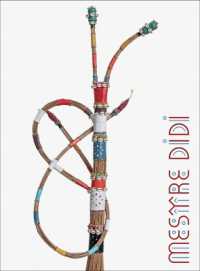- ホーム
- > 洋書
- > ドイツ書
- > Social Sciences, Jurisprudence & Economy
- > Politics, Society, Work
- > political science
Full Description
The concept of freedom of association has been largely neglected by political and moral philosophers over the past several centuries, despite the fact that the freedom to associate with fellow citizens (and non-citizens) is an implication of almost every version of liberalism capaciously considered.








